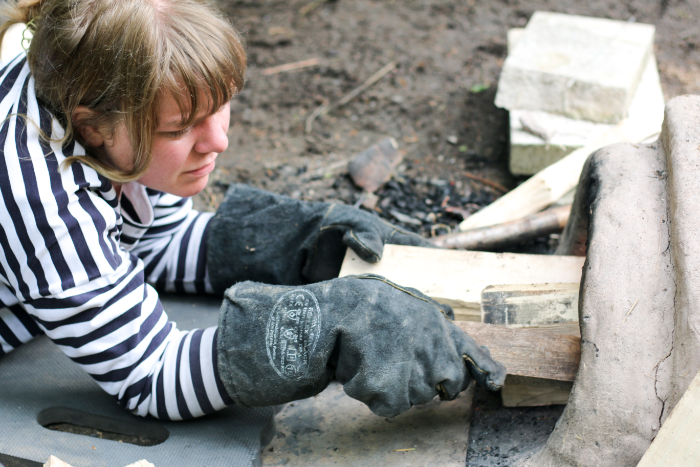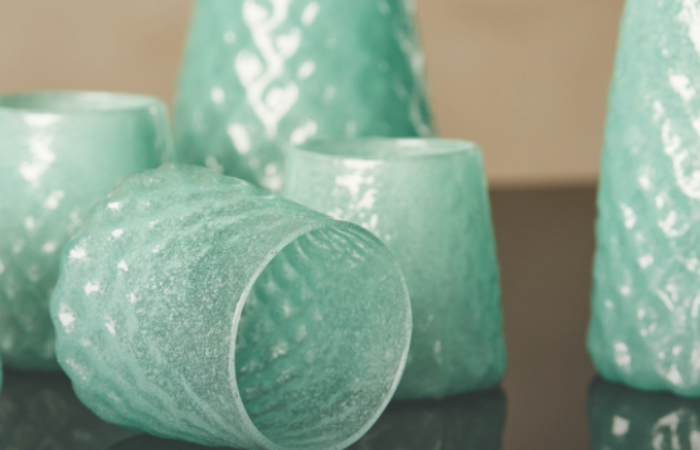
Glass artist wins Heritage Crafts Sustainability Award
London researcher and glass artist Lulu Harrison has won the Queen Elizabeth Scholarship Trust (QEST) 2023 Heritage Crafts Sustainability Award.
Lulu, a 2023 QEST Scholar, has been recognised for her sustainable processes in incorporating waste from local fishing industries to create glass pieces.
The award, which was introduced in 2023, recognises makers who have made a change to their materials or processes or innovated in another way to measurably reduce their impact on the environment within the last 12 months.
She was officially recognised at a Winners’ Reception at the Vicars’ Hall, Windsor Castle, in November 2023, where she was awarded the £2,000 prize.
Lulu was one of 66 applicants who applied for the award and the judges were delighted at the number of applications received, as well as the quality and variety, which collectively highlighted the role that craft can play in building a more sustainable future for all.
Lulu impressed the judges with her approach to glassmaking, which utilises both historic techniques and scientific development, and replaces highly processed/transported materials with local, abundant, invasive or waste materials.
It was during her MA in Materials Futures at Central Saint Martin’s that Lulu first learned that calcium carbonate (shell) is one of the main components used in soda-lime glass making. Since then, she has used this knowledge to create collections using shellfish waste from the Cornish fishing industry and the River Thames.
In the last 12 months, Lulu has been training with historical glass expert Dr Chloe Duckworth, testing glass recipes made from silica, alkali and calcium sources with a maximum of three ingredients in each batch.
All the materials were sourced locally to Newcastle and were either in abundance, invasive or collected as waste from a local industry, such as waste wood ash and fish bones from a local restaurant. They have achieved lower (and therefore less energy intensive) melting temperatures than a typical raw glass batch. In addition Lulu has also furthered her knowledge about how natural impurities from raw materials can be used to colour glass as a non-hazardous alternative to metal oxides.
Lulu said she was “over the moon” to be named the winner. “It’s an incredible honour to be the first recipient of this award, and it means so much to me to be recognised for my craft, which is quite niche,” she commented. “My true passion is working with regional materials and working on a more local level inspired by ancient processes, showing the world how glass can be made in a different way.
“As a keen cold-water swimmer, I’ve always loved the sea and I’m interested in working with different coastal communities and coastal plants/shell types to create new glass recipes.”
Lulu said she aims to put the prize money towards setting up her own studio and creating new work.
Judges for the Sustainability Award included renowned environmental craft advocate Katie Treggiden, founder of Making Design Circular. She stated, “Lulu’s work stood out for her exciting material innovation within a heritage craft practice, because she is using craft to actively do good and make a positive impact (not just reduce her impact), and because the outcome was beautiful and interesting enough to stand on its own two feet.”
Previously, Lulu was also the first awardee of the Cockpit Worshipful Company of Glass Sellers Bursary, giving her a subsidised studio at Cockpit in London.
Image: Lulu Harrison’s glass experiments impressed the judges. Photo courtesy of QEST.
